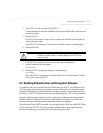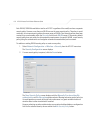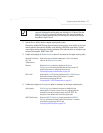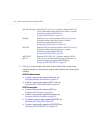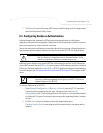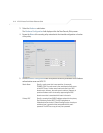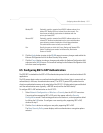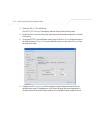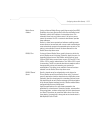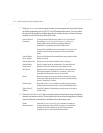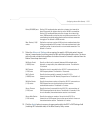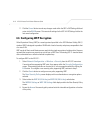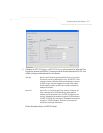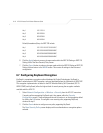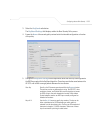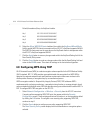
Configuring Access Point Security
6-13
Radius Server
Address
If using an External Radius Server, specify the numerical (non-DNS)
IP address of a primary Remote Dial-In User Service (Radius) server.
Optionally, specify the IP address of a secondary server. The
secondary server acts as a failover server if the primary server
cannot be contacted. An ISP or a network administrator provides
these addresses.
Radius is a client/server protocol and software enabling remote-
access clients to communicate with a server used to authenticate
users and authorize access to the requested system or service. This
setting is not available if Internal has been selected from the
Radius Server drop-down menu.
RADIUS Port If using an External Radius Server, specify the port on which the
primary Radius server is listening. Optionally, specify the port of a
secondary (failover) server. Older Radius servers listen on ports
1645 and 1646. Newer servers listen on ports 1812 and 1813. Port
1645 or 1812 is used for authentication. Port 1646 or 1813 is used
for accounting. The ISP or a network administrator needs to confirm
the appropriate primary and secondary port numbers for
authentication. This setting is not available if Internal has been
selected from the Radius Server drop-down menu.
RADIUS Shared
Secret
Specify a shared secret for authentication on the Internal or
Primary Radius server (External Radius Server only). The shared
secret is required to match the shared secret on the Radius server.
Optionally, specify a shared secret for a secondary (failover) server.
Use shared secrets to verify Radius messages (with the exception
of the Access-Request message) sent by a Radius enabled device
configured with the same shared secret.
Apply the qualifications of a well-chosen password to the
generation of a shared secret. Generate a random, case-sensitive
string using letters, numbers and symbols. Verify the shared secret
is at least 22 characters to protect the Radius server from brute-
force attacks. An example of a strong and secure shared secret is:
8d#>9fq4bV)H7%a3-zE13sW.



